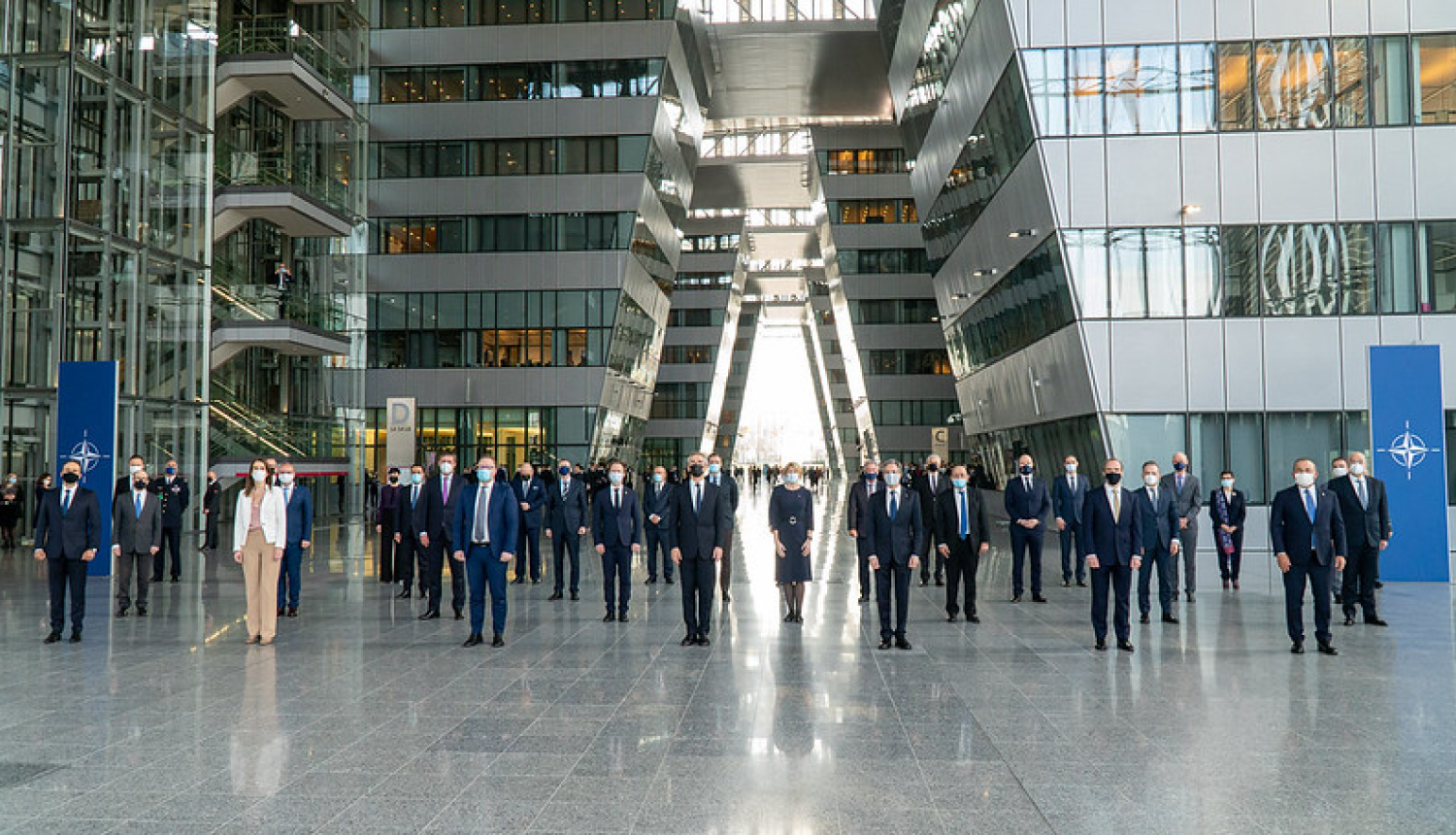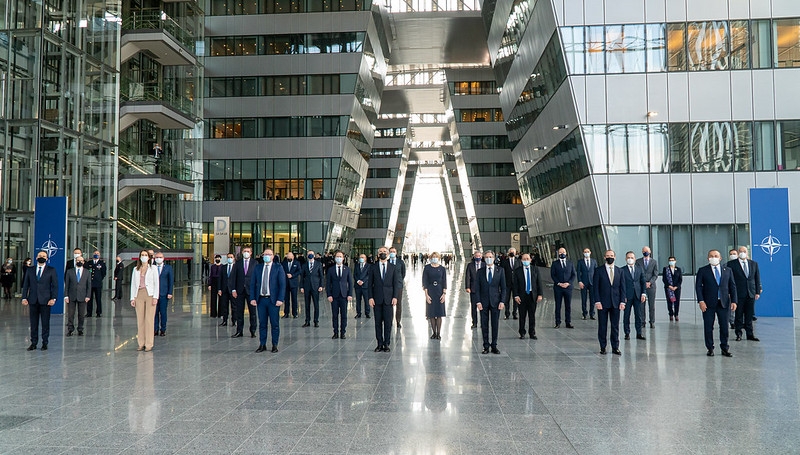Ministers of Foreign Affairs of NATO member countries met in Brussels on 23 and 24 March 2021 to prepare for the upcoming NATO summit this summer. During the meeting, the officials exchanged views on the NATO 2030 reflection process, challenges from the south of the Alliance, and developments in Afghanistan, as well as relations with Russia and issues of arms control. Latvia was represented at the NATO ministerial by Foreign Minister Edgars Rinkēvičs.
In a discussion on the reflection process to strengthen NATO’s political dimension, Edgars Rinkēvičs expressed support for the Secretary General’s approach to guiding the debate. According to the Minister, it is essential to continue working in the direction headed while engaging with the Allies in the process so that proposals can be finalised before the NATO Summit this summer. We consider it essential that the reflection process strengthen NATO both militarily and politically, Edgars Rinkēvičs said. He added that collective defence of the Alliance’s member countries in response to current security challenges and risks in the Euro-Atlantic space should remain NATO’s primary task. Latvia is providing its contribution to the common efforts of enhancing collective defence by investing 2.3% of its GDP in defence.
The Foreign Ministers, together with their counterparts from Finland and Sweden and the EU’s High Representative for Foreign Affairs and Security Policy, discussed the dialogue with Russia. Edgars Rinkēvičs noted that a strong NATO collective defence remains vital to deter Russia from aggressive actions. At the same time, the Alliance should stay open for a dialogue with Russia in line with allied principles and values. Referring to arms control, the Latvian Foreign Minister underlined that there is a need for coordination and sharing of information among Allies on such matters.
Edgars Rinkēvičs voiced solidarity with Bulgaria, where several persons were recently detained on suspicion of spying for Russia and two Russian diplomats were expelled.
Discussing developments on NATO’s Southern flank, the Ministers were unanimous that the Alliance should continue to strengthen the region’s security. Edgars Rinkēvičs noted that in the context of NATO’s 360-degree approach, collective measures should continue to prevent challenges and risks to security emanating from the east and the south.
According to the Minister, the Alliance’s engagement should be aligned both with its strategic interests and the partners’ needs. Work with partners should continue to increase stability in the Middle East and North Africa, focussing in particular on the fight against terrorism and the spread of extremism. The Latvian Foreign Minister also expressed support for the Afghan peace process and the efforts toward stabilising the situation in Afghanistan.





